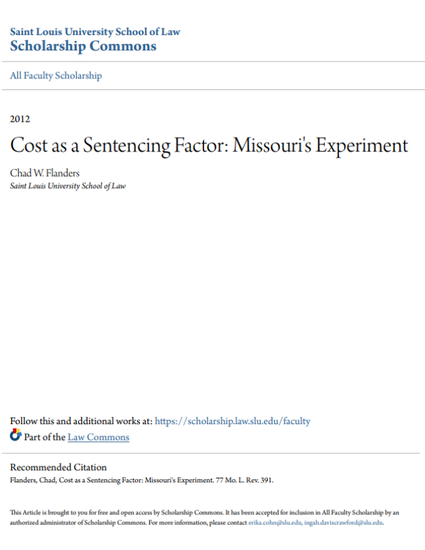
Article
Cost as a Sentencing Factor: Missouri's Experiment
Missouri Law Review
(2012)
Abstract
In sentencing offenders, should judges take into account the different costs of possible punishments? In 2010, Missouri gave sentencing judges, in addition to information about the nature and severity of the offense and the criminal history of the offender, the price tag of various punishments: prison cost about $17,000 a year, compared to probation, which is much cheaper (about $7000 per year). Judges were allowed, even encouraged, to base their sentences on how much it each sentence would cost the state. The move was a subject of considerable national and local controversy.
This essay represents the first sustained look at Missouri’s new sentencing reform, and argues against the wisdom of allowing judges to consider costs when sentencing. Although it is too much to say that judges should be categorically prohibited from considering the costs of possible sentences, there are good arguments why cost should be a strongly disfavored category when it comes to criminal sentences. Desert should always be the primary consideration in sentencing for judges, and while other factors may make a difference at the margins, when judges base sentences on extrinsic, rather than intrinsic features of offenses and offenders, they risk creating unjust variations in sentences.
Disciplines
Publication Date
2012
Citation Information
Chad W. Flanders. "Cost as a Sentencing Factor: Missouri's Experiment" Missouri Law Review Vol. 77 (2012) p. 391 - 410 Available at: http://works.bepress.com/chad_flanders/11/
